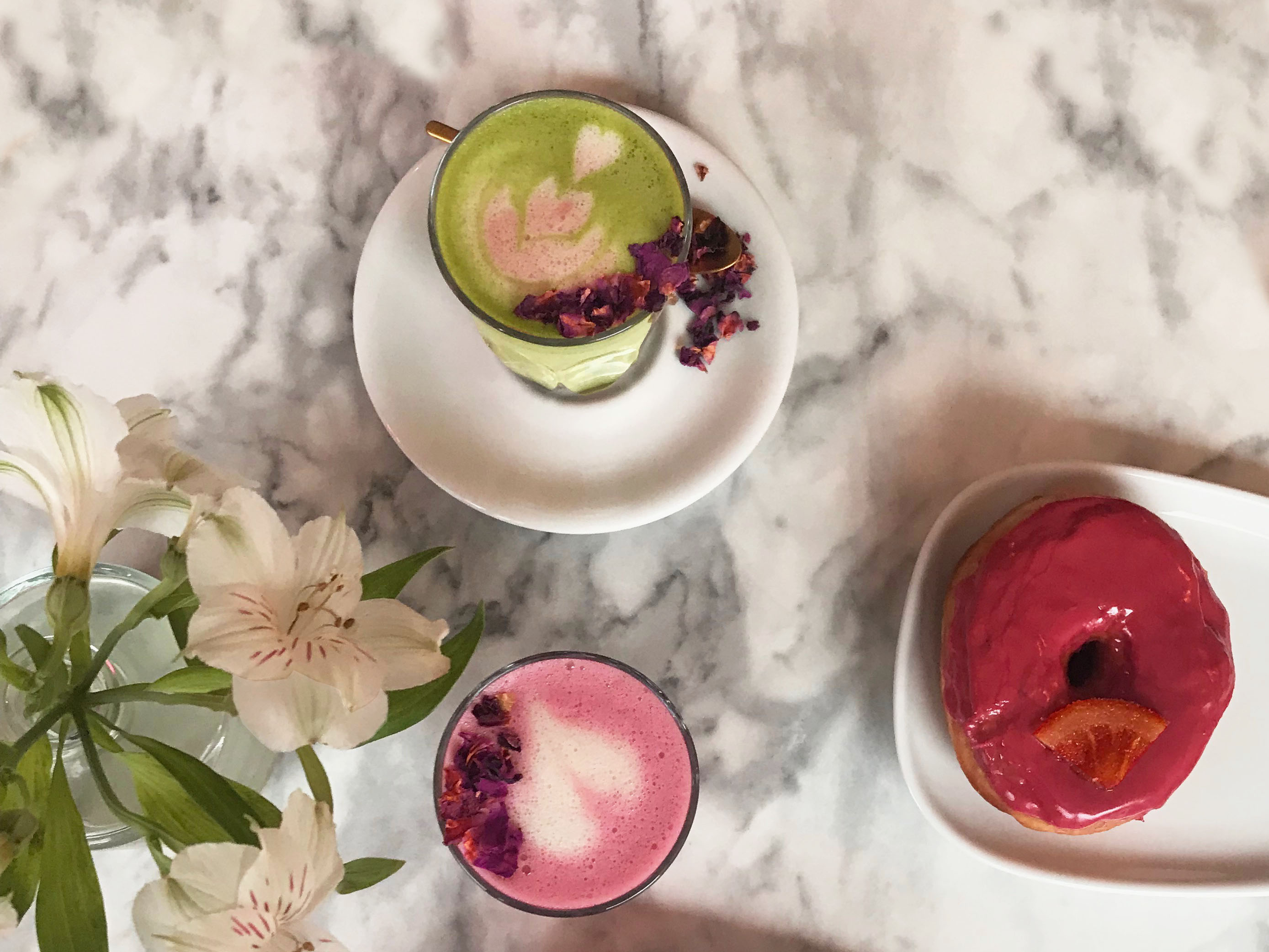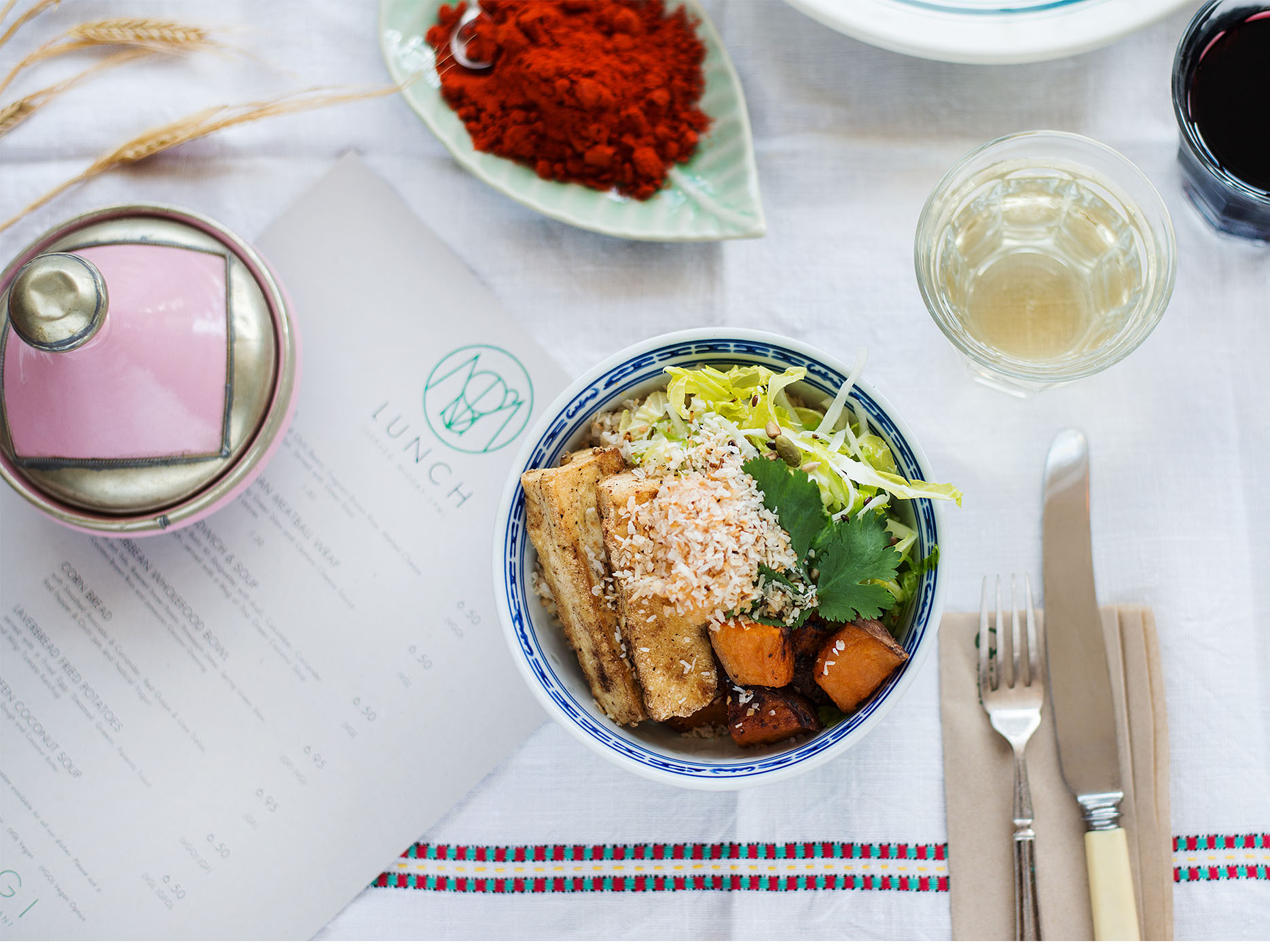Voxpop: Do you try to eat less meat for the sake of the environment?
“I went vegetarian for a bit out of concern about my environmental impact – I’m not anymore but I definitely eat less meat than I did before and still use a lot of my fave veggie recipes.” – Tanya Harrington, 22, copywriter
“I went veggie because I didn’t want to harm animals but since learned of the environmental factors and find that that is easier when explaining my reasoning to meat eating friends.” – Sophie Attwood, 27, managing director
“The environmental impact was a huge factor in my decision to reduce my meat consumption. I’d always known from an ethical standpoint that meat was bad but through social media I understood how environmentally unfriendly it was too.” – Lizzie Harrett, 25
“I haven’t eaten meat in 5 years because I found out that the meat industry was one of the main contributors to climate change. I felt hypocritical saying I was concerned about the environment and getting involved in all these campaigns, but then still putting money into the meat industry.” – Beth, 20, student
“I went veggie for a few months because of the environmental impact of meat and only stopped being vegetarian because I couldn’t manage to get enough protein.” – Charlie King, 20, student
“Went veggie for the environment five years ago. That’s why I have an ‘if meat is going in the bin, I’ll be that bin’ policy.” – Zander Sharp, 24, musician
In order to meet environmental goals, the UN have said that we need to drastically cut down on our meat consumption – and new magazine The Dish is here to help

Mulled fruit vegan doughnut alongside a green matcha late with oat milk from Blanche Bakery featured on The Dish front cover
A report released last week has recommended slashing meat consumption, amongst 22 other proposals so that the world can feed a population of 10 billion by 2050.
The report was presented at the COP24 summit in Katowice, where delegates from almost 200 nations gathered to negotiate pledges made in the 2015 Paris climate deal.
The report, Creating a Sustainable Food Future was produced by WRI in partnership with the World Bank, U.N. Environment and U.N. Development Program.
It stated that ruminant animals, mainly cattle, sheep and goats, generate approximately half of all agricultural production emissions.
In order to cut down on greenhouse gas emissions in agriculture, five proposals were made, including encouraging people to cut down on the amount of meat they eat.

A flexitarian meal from Milgi, an independent vegan restaurant in Cathays that features in the magazine
This doesn’t necessarily mean giving up meat altogether, rather reducing your intake, and choosing quality sources for the meat you do eat. The world’s population needs to become flexitarian.
With this need for change at the centre of its philosophy, a flexitarian magazine is launching in Cardiff.
The Dish is a magazine that started with one simple idea: how to eat less meat without cutting it out completely. While the world needs to learn to cut down on its meat consumption, it doesn’t mean that we all need to become vegan.
With recipes, advice and reviews, The Dish can help you to eat more responsibly and sustainably.
Will Prichard, owner of Gower Salt Marsh Lamb has noticed this change in people’s diets already. He said: “Quite a few of our customers call themselves flexitarian. They tend to be vegetarian or vegan a couple of days a week then when they do eat meat they’ll want it to be from a source they know well.
“People still will eat meat maybe on a less regular occurrence, but when they do they’ll eat higher quality stuff.”
Voxpop: Do you try to eat less meat for the sake of the environment?
“I went vegetarian for a bit out of concern about my environmental impact – I’m not anymore but I definitely eat less meat than I did before and still use a lot of my fave veggie recipes.” – Tanya Harrington, 22, copywriter
“I went veggie because I didn’t want to harm animals but since learned of the environmental factors and find that that is easier when explaining my reasoning to meat eating friends.” – Sophie Attwood, 27, managing director
“The environmental impact was a huge factor in my decision to reduce my meat consumption. I’d always known from an ethical standpoint that meat was bad but through social media I understood how environmentally unfriendly it was too.” – Lizzie Harrett, 25
“I haven’t eaten meat in 5 years because I found out that the meat industry was one of the main contributors to climate change. I felt hypocritical saying I was concerned about the environment and getting involved in all these campaigns, but then still putting money into the meat industry.” – Beth, 20, student
“I went veggie for a few months because of the environmental impact of meat and only stopped being vegetarian because I couldn’t manage to get enough protein.” – Charlie King, 20, student
“Went veggie for the environment five years ago. That’s why I have an ‘if meat is going in the bin, I’ll be that bin’ policy.” – Zander Sharp, 24, musician

